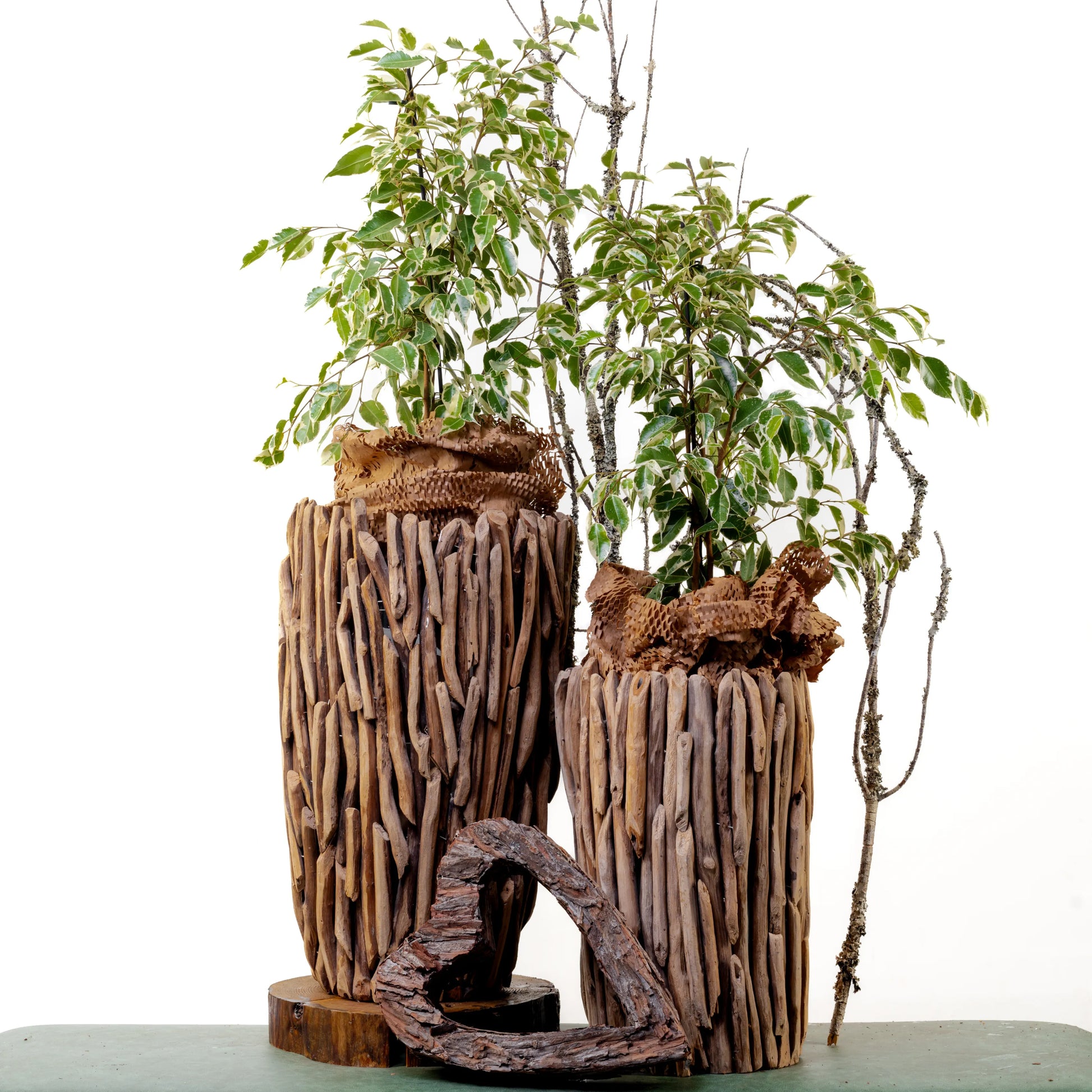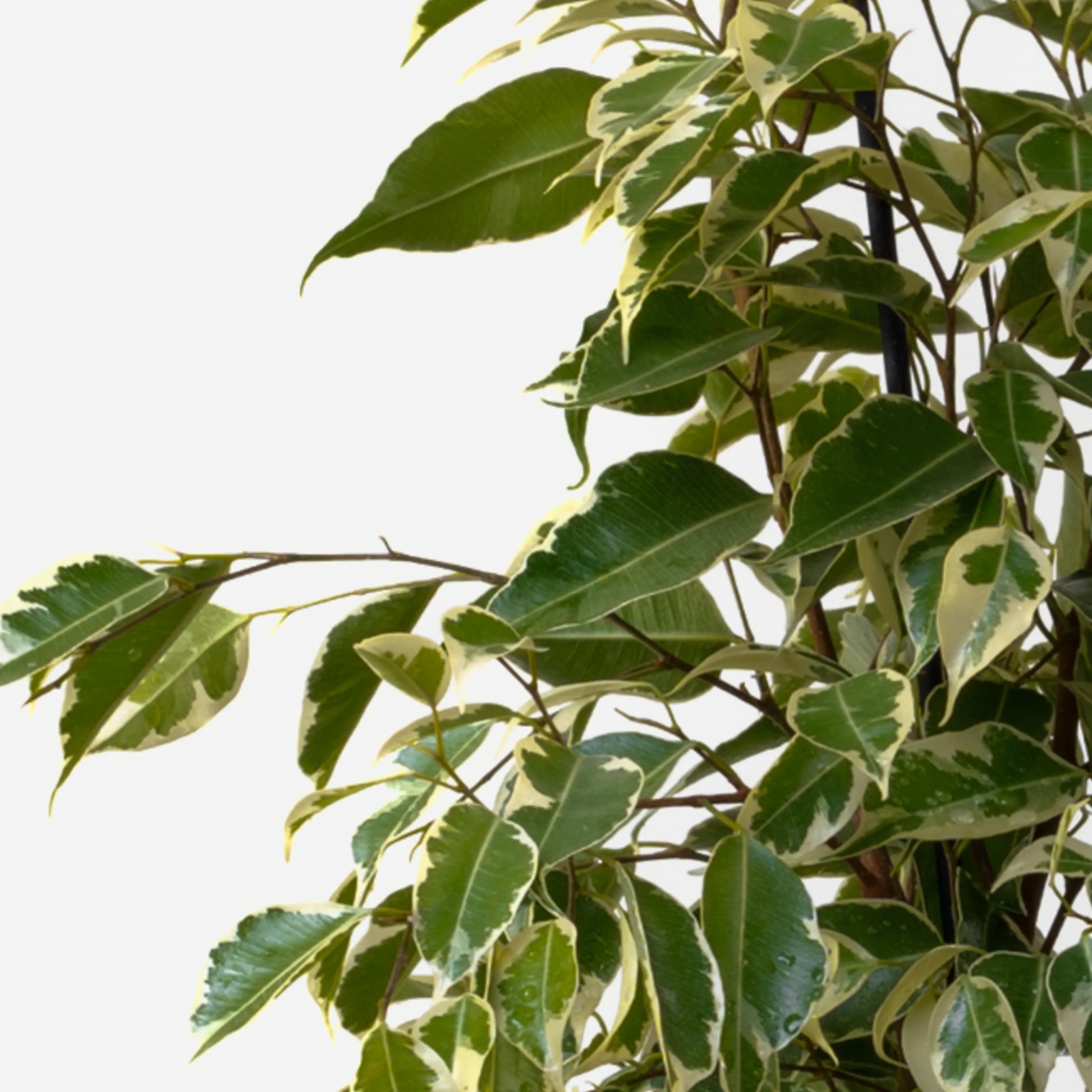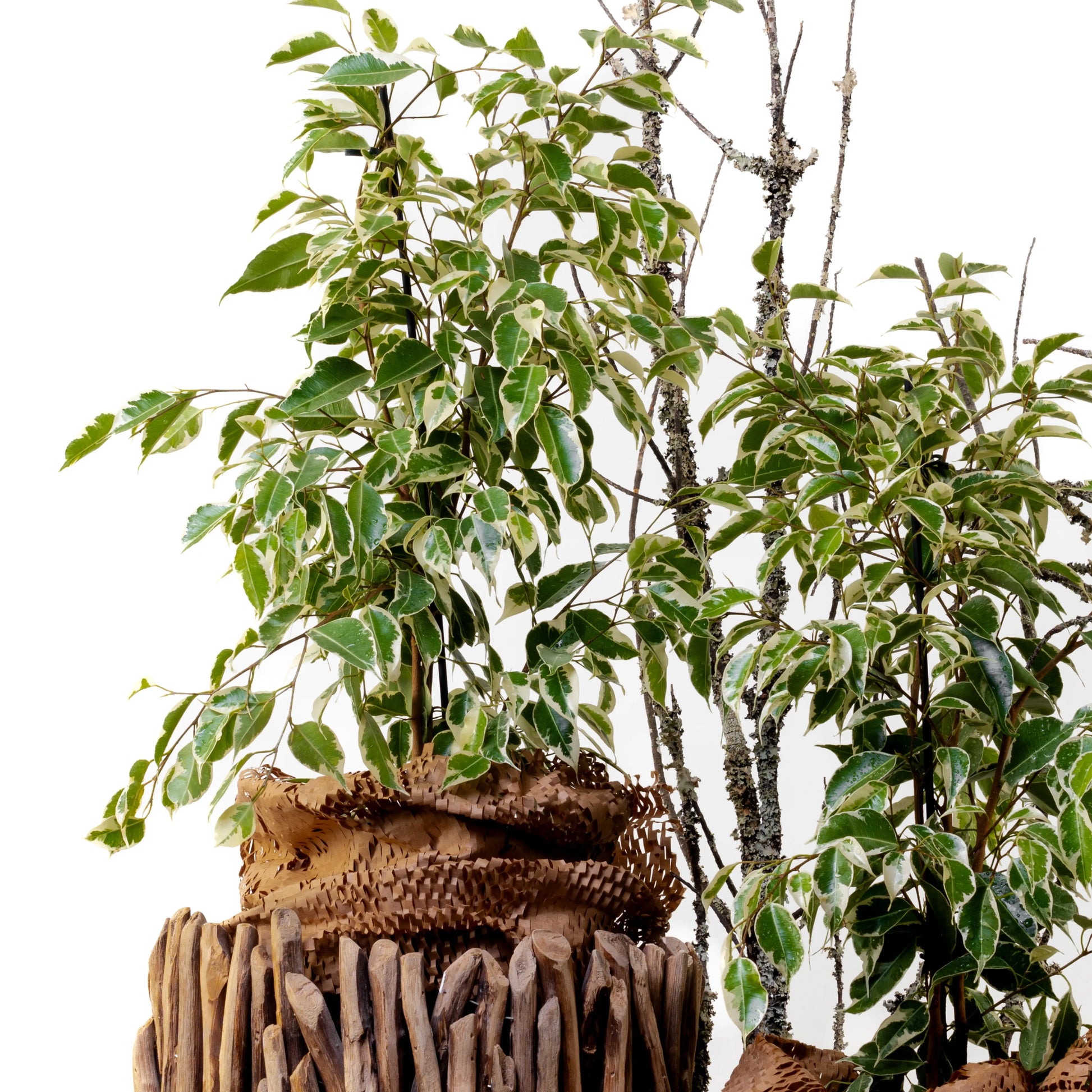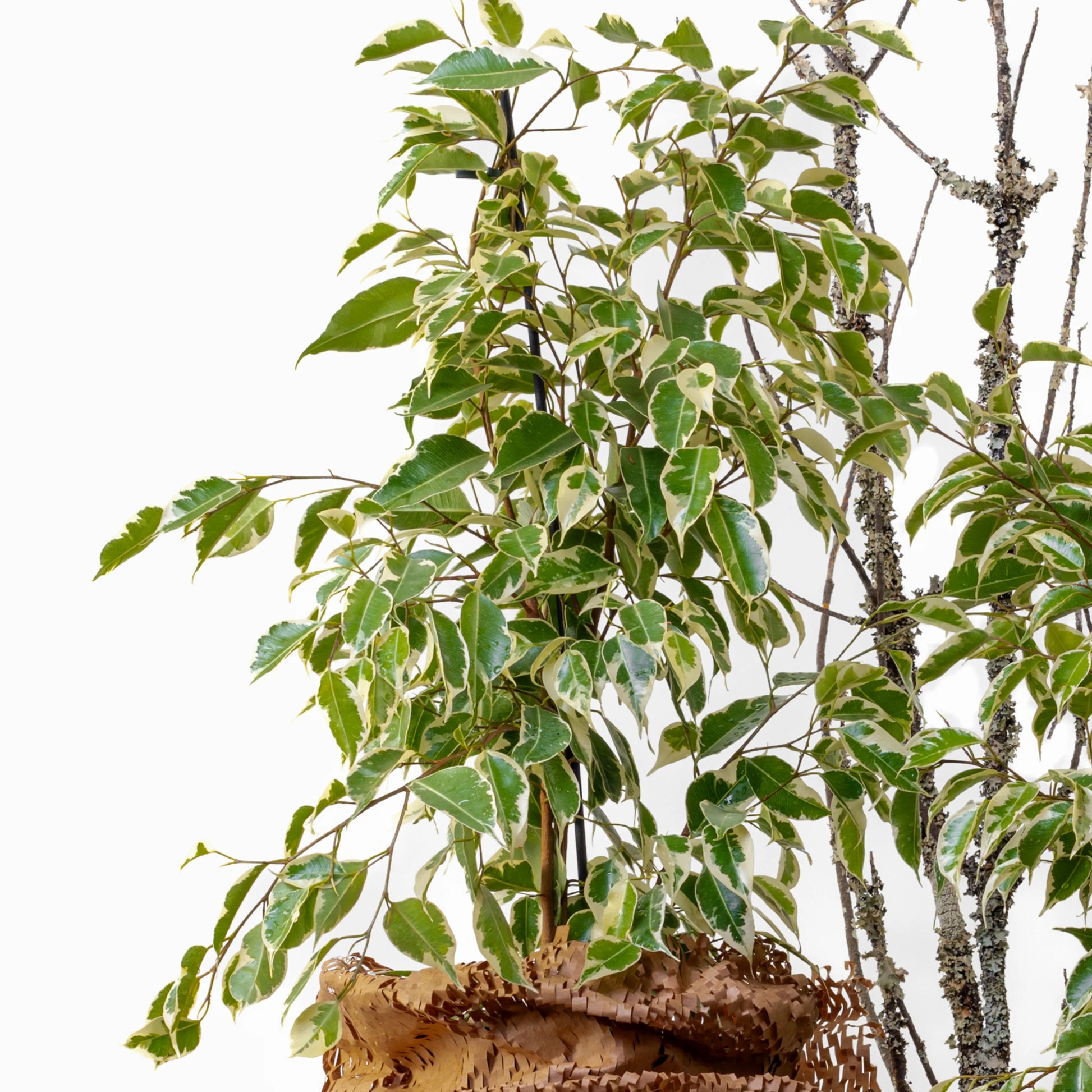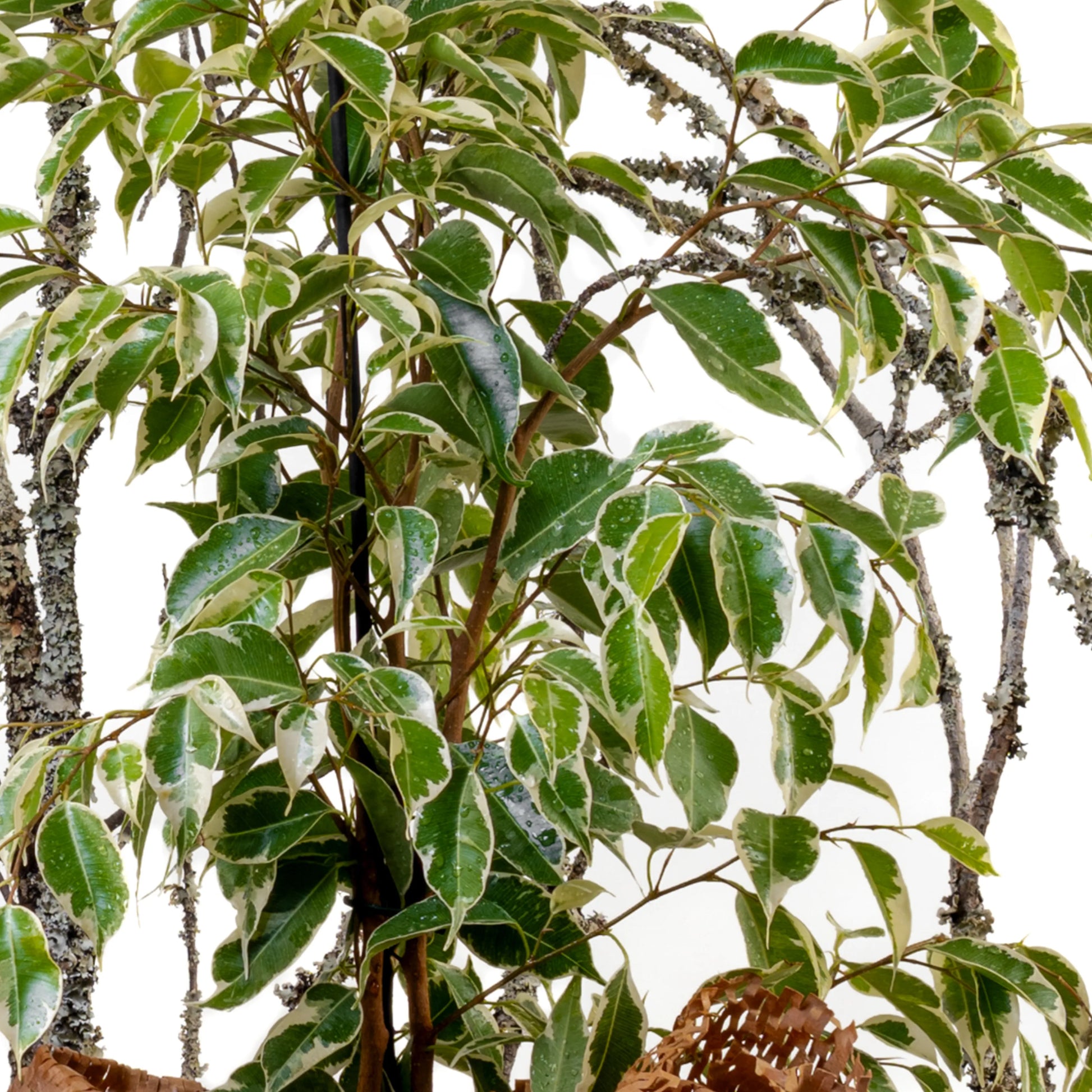Ficus Benjamin Twilight
Ficus Benjamin Twilight
Couldn't load pickup availability
Native mainly to tropical regions, the Ficus benjamina 'Twilight' has been important to humanity since prehistoric times. In addition to being symbolic in various religious traditions, its trunk can be used to extract latex and produce paper and fabric. In Ancient Egypt, its wood was used to make sarcophagi.
Difficulty Care
Difficulty Care
Easy
Ideal Temperature
Ideal Temperature
Ficus benjamina 'Twilight' prefers a warm, humid environment due to its lack of cold hardiness. It grows best between 20 to 30℃ and suffers frost damage below 16℃.
Watering
Watering
Thriving in the high humidity of its native rainforest, Ficus benjamina ‘Twilight’ has adapted to needing consistent levels of moisture. This species is moderately drought tolerant, but thrives when there is a balance between water retention and drainage, indicative of its preference for a humid environment. Watering every week will keep its foliage lush. Commonly grown indoors for its ornamental appeal, Ficus benjamina ‘Twilight’ benefits from regular misting to replicate the humid conditions it loves, improving both growth cycles and leaf health.
Light
Light
Ficus benjamina 'Twilight' prefers bright, indirect light. When used as an indoor potted plant, its leaves can burn in bright sunlight, high temperatures or poor ventilation, so shade it appropriately. In the weak winter light, place it in a location with relatively bright sunlight to ensure the most colorful leaves. It can tolerate shade and grow in low-light environments, but a long period of lack of sunlight will stunt its growth and cause leaf drop.
Soil
Soil
Ficus benjamina 'Twilight' prefers fertile soil and does not tolerate barren soil. It does not like sticky soil with poor drainage, so a bed rich in organic matter and easy to compact is preferable. The soil should be slightly acidic, with a pH of 6-6.5. When used as a container plant, mix decayed leaf litter, garden soil and organic fertilizer in a ratio of 4:3:3.
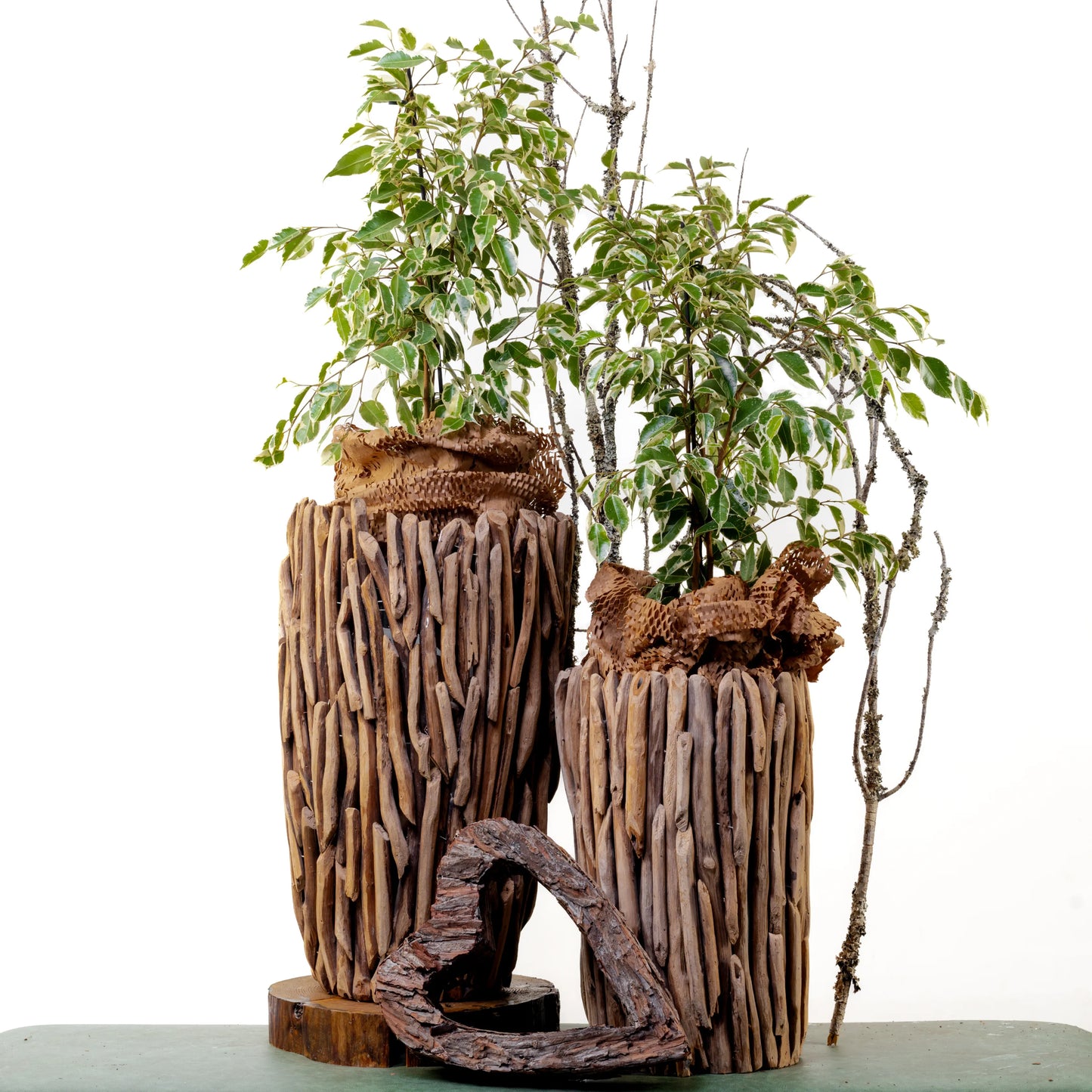
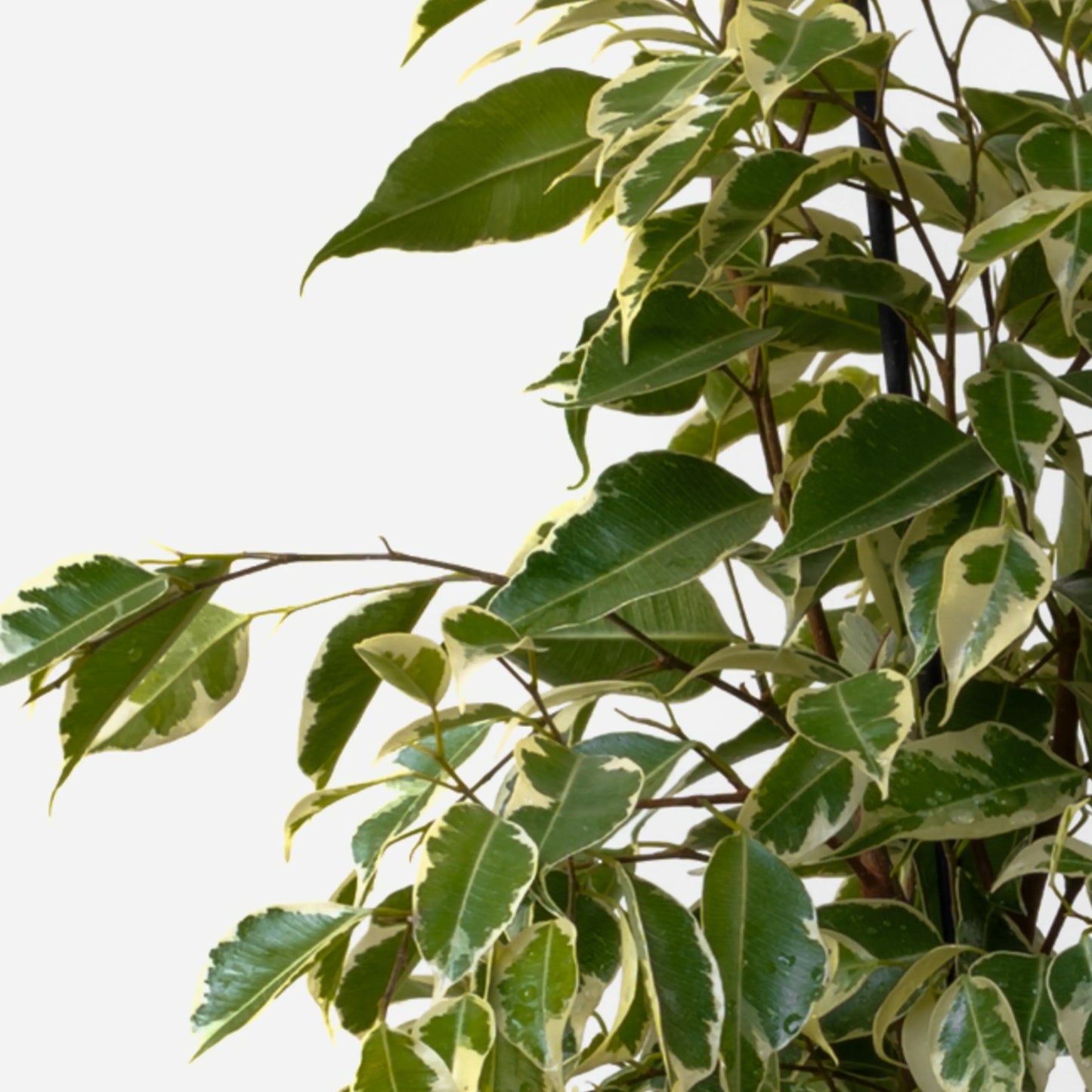
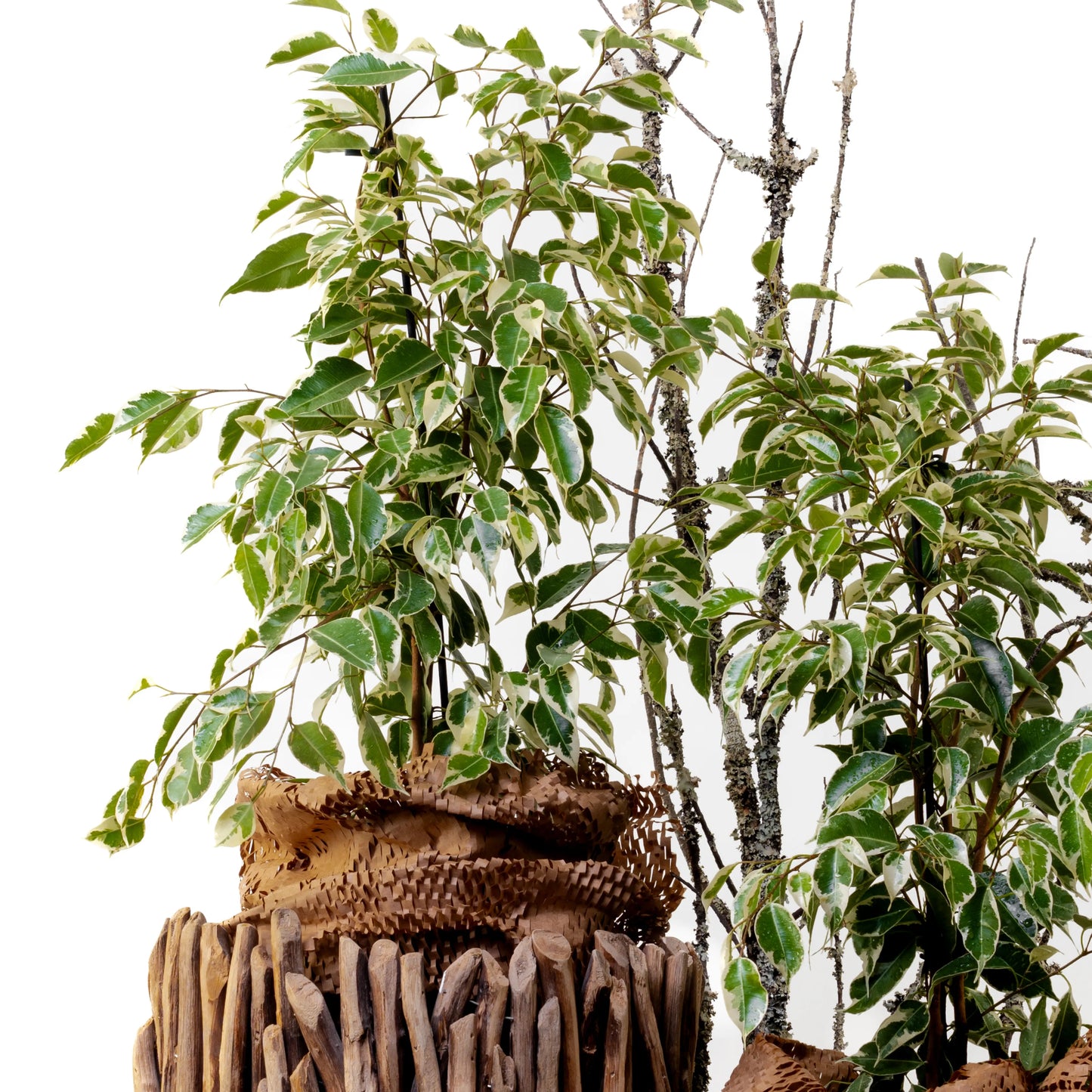
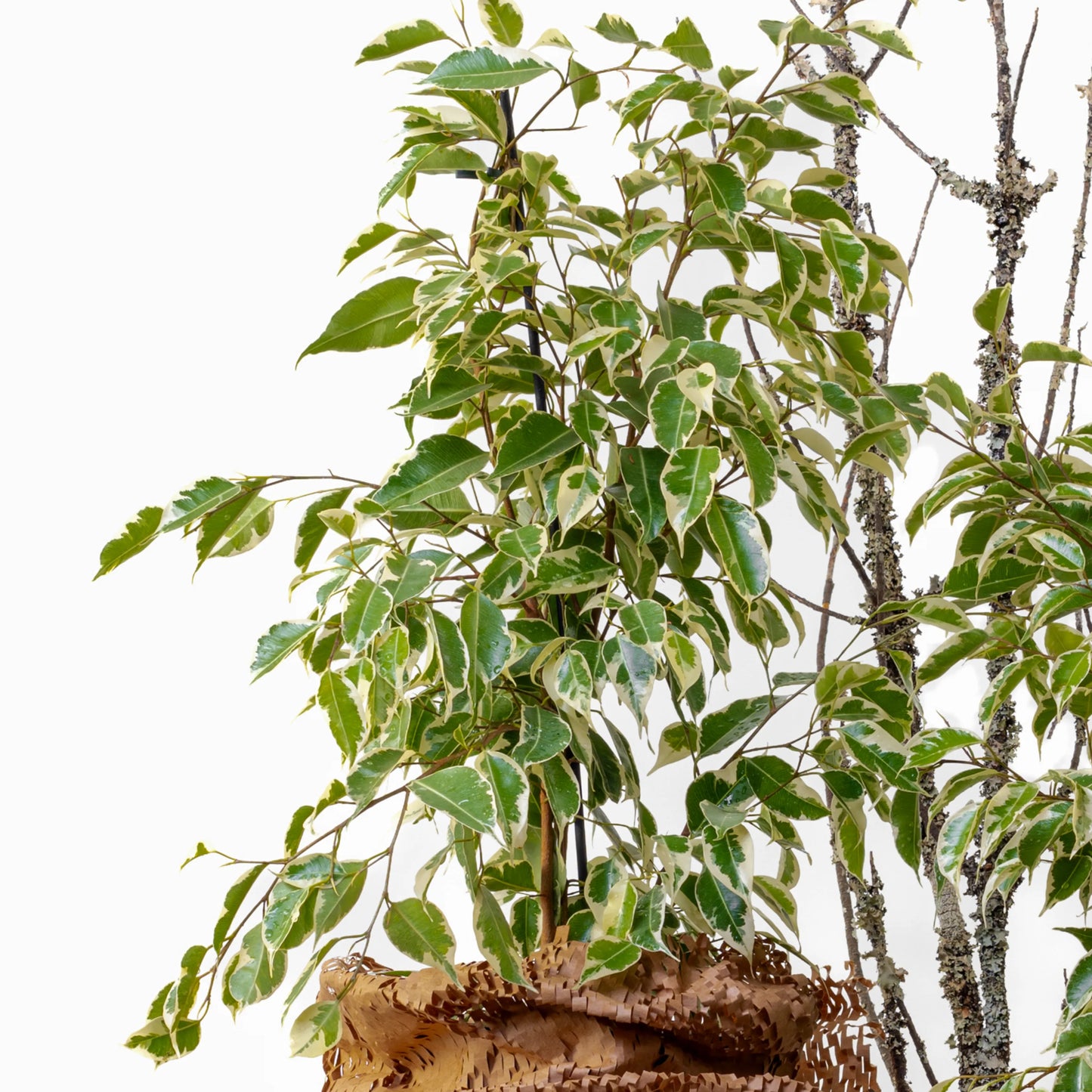
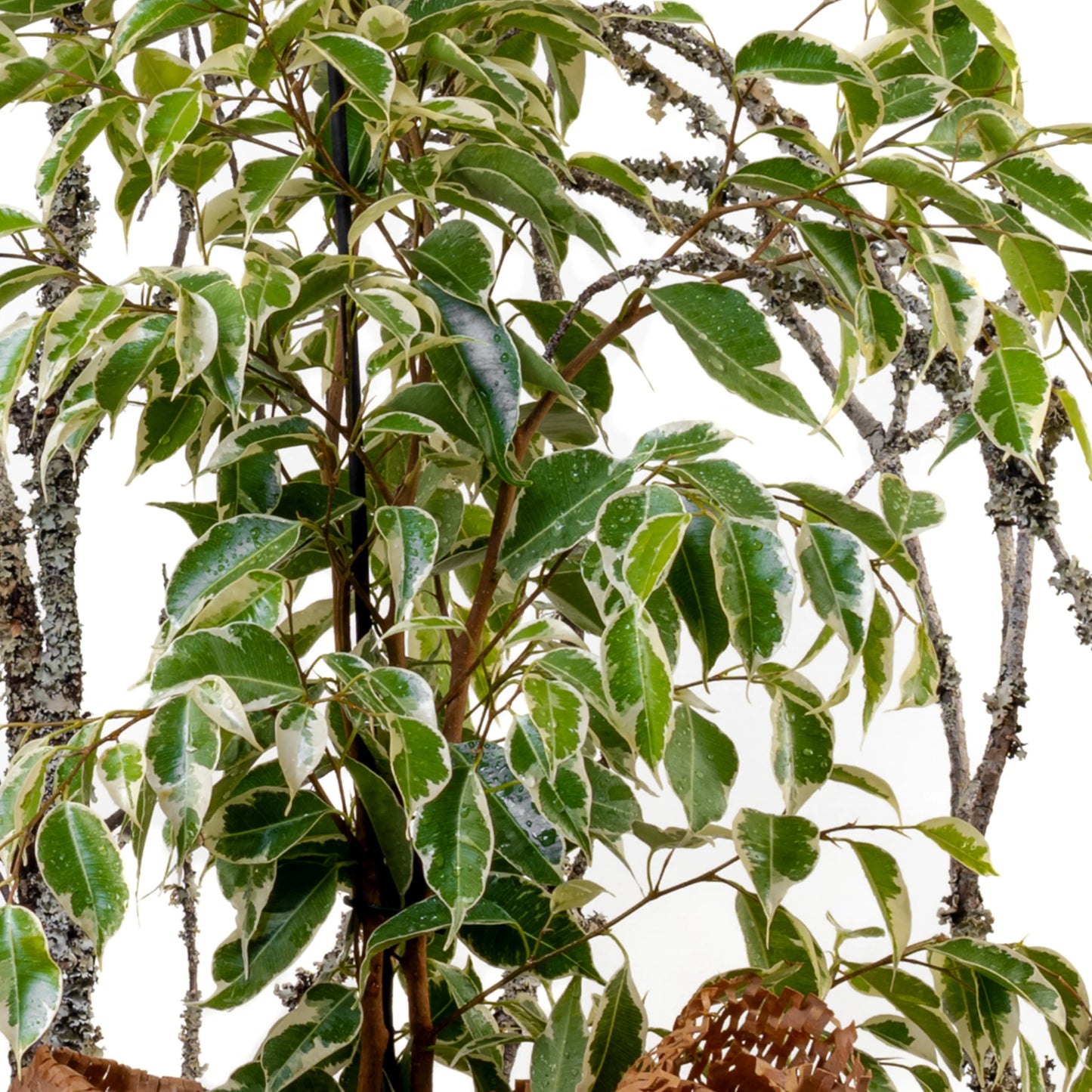
Other Information
Originally from Asia, the ficus benjamin is known for its high adaptability – it can be grown both in the garden and indoors – and for its small, discreet white flowers that bloom during the flowering season. When grown in the garden, its flowers turn into red fruits, which attract birds to the leisure area. It's charming!

